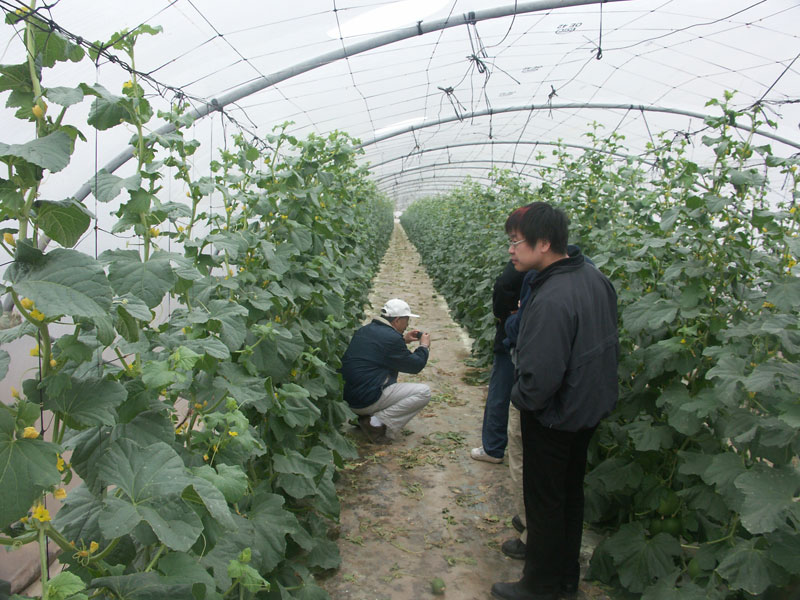|
|
|
|
Lessons
from Israel’s agricultural sector
The New Vision, August 2008
By
Christopher Omoding
WHO knew that bananas could grow in a
desert? David Sseppuyya’s pictorial from a recent trip to Israel
confirmed this (Sunday Vision August 3). The photograph showed
bananas growing at the foot of the Mount of Beatitudes and it
reveals the fact that
agriculture in Israel is advanced.
Israel’s agriculture sector is characterised by an intensive
system of production, stemming from the need to overcome the
scarcity in natural resources, particularly water and arable
land. The constant growth in agricultural production is due to
the close cooperation between researchers and farmers. Together,
they develop and apply new methods of agriculture.

The result is modern agriculture in a country more than half of
whose area is desert. With only 24,000sq.km, Israel is a-tenth
of the size of Uganda but has a GDP per capita of
$23,000(sh38m). Yet Uganda has only $394(sh 644,190) despite its
relatively vast size and resources (Sunday Vision, June 1).
Uganda uses about 12 Km3 of water per year for irrigation,
whereas her annual total renewable water resources are 66 Km3.
These figures reveal the great potential for irrigation
agriculture in the country.
Currently, most of Uganda’s
agriculture is rain-fed which makes it vulnerable during
climatic variations.
Tarsis Kabwegyere, the Minister for Relief and Disaster
Preparedness, recently revealed that 3.5 million Ugandans face
starvation in Teso, Karamoja, parts of Lango, Acholi and West
Nile. |
|
This year’s delayed
rains have resulted in a poor growing season (Daily Monitor
August 8). Uganda experiences food shortages yet she has enough
resources for feeding her population. Nutritional deficiencies
are also common in many parts of the country.
Malnutrition is responsible for 40% of deaths among children.
Irrigation agriculture is the way forward because the
rain-pattern is becoming more unreliable. According to the 2002
Uganda Population and Housing Census, Uganda’s annual population
growth rate at 3.4%, while the annual rate of food production is
only 1.5%. If food production levels do not increase, food
shortages will become more acute in the near future.
Food shortages can be solved through a revolution in
agriculture. I appreciate the Government’s initiatives for
improving agriculture such as the Plan for Modernisation of
Agriculture and the National Agricultural Advisory Services but
there is need to do more.
 |
Uganda can learn from Israel. As Israeli farmers and scientists
have had to cope with a difficult environment and limited water
resources, their experience is relevant to Uganda. Israel’s
success lies in the determination and ingenuity of farmers and
scientists who have dedicated themselves to developing a
flourishing agricultural sector, demonstrating to the world that
the real value of land is a function of how it is utilised.
According to the Israeli government’s official website, Israel
is willing to share its expertise with developing nations such
as Uganda through its Centre for International Cooperation.
The fields of expertise include water resource management and
irrigation, desert agriculture and combat of desertification,
emergency and disaster medicine and employment programmes.
The Ugandan government should seek partnership with the Jewish
state because all Ugandans will benefit, including the 3.5
million that are currently facing starvation.
Uganda will, therefore, benefit greatly through partnering with
Israel. As a result, problems like food shortages could become
history and an arid area like Karamoja could start cultivating
bananas and become a food basket.
The writer is a concerned citizen
|
|
|